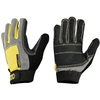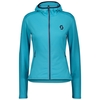Walking, a long journey of discovery

 1 / 7
1 / 7 A. Beltrame
A. Beltrame
We have come to accept that speed is an inevitable part of our lives but we need to slow down and, at times, even stop. Slow movement allows us to listen and experience, and if we just stopped running for a moment and started walking, we would realise how much of ourselves we are missing. After all, walking is the easiest thing in the world, we have been doing it since we were little, but only recently has it become an unexpectedly attractive, transgressive and alternative pastime, at least for some of the world's population which, although more well-off, are slaves to technological progress.
Many studies have shown that when we walk, we produce a healthy dose of substances like serotonin and endorphins which make us feel good. But walking also allows us to free our minds and become one, body and soul, with our surroundings. When we walk in the countryside, or even in the cities, every step we take opens a window onto the outside world. Even our senses are stimulated by smells, colours, noises, flavours, the heat and the cold. And our sense of touch is heightened: our feet on the ground, the wind on our skin, the rain or snow on our face. As we walk, our awareness of our body is heightened and we breathe in the place we are immersed in; each time is like the first, even if we have already been there, because the sensations we experience are different.
Walking allows us to get a better understanding of the land and its people, we notice details that would otherwise escape us. But in order to really see things, you have to go at the right pace, otherwise it would just be like going from A to B and we would miss more things than we would notice. The right pace does not necessarily mean walking slowly, if anything it means walking with awareness so we can relate better to the countryside and local culture. Hiking, trekking, alpinism and gentle running are all forms of walking we can do with awareness, without being overwhelmed by speed, stopping when we want to, when something piques our interest, enjoying the causal nature of our encounters.
Percorsi Occitani (Occitan paths) and the model Val Maira
Maria Schneider is deputy chairman of the association Percorsi Occitani, a group of small businesses which has run the most popular hiking trail in the Maira Valley for almost twenty years. Together with her husband Andrea Schneider, at the beginning of the '80s she was one of the pioneers who helped give the valley a new lease of life. "We ended up here quite by chance at the end of the '70s; we were actually headed for Provence on our holidays but took a wrong turning" says Maria Schneider. "We were taken aback by this valley and decided to settle here. The first business we set up was an Italian language school for foreigners in Prazzo. Lessons were held by Italian teachers and in our spare time my husband and I took the students hiking in the mountains". In 1990 the Schneiders moved to the town of Stroppo and founded the Centro Culturale Borgata San Martino, which later became an important centre for cultural and gastronomic events and hiking expeditions. In the meantime a plan was taking shape: to revive the old footpaths linking the villages in the valley and make them into one great circular trail. "The Percorsi Occitani owe their existence to so many people. The idea undoubtedly came from the Grande Traversata delle Alpi" continues Mrs Schneider. "People love the trail because it has given rise to a special kind of accommodation: you can walk for an entire day without meeting anyone, but at the end you are guaranteed a Posto Tappa (place to stay over), offering tasty traditional fare". Walkers on the Percorsi Occitani trail spend 7-10 days in the valley, they stay over at a different Posto Tappa every day and 95% of them speak German (Germans, Austrians and Swiss). An estimated 4000 people visit the valley every year, creating seasonal employment for about 50 people. Tourism linked to hiking has brought significant economic benefits throughout the valley and the flood of people leaving has been halted, as Maria Schneider tells us: "Thanks to the Percorsi Occitani, new accommodation has sprung up, lots of houses have been renovated, the footpaths are well signposted and winter hiking (Alpine skiing and walking with snowshoes, editor's note) is becoming more and more popular every year". Mrs Schneider knows exactly what the future has in store: "The Maira Valley is a niche for a special kind of person. It cannot survive with tourism alone. If it is to have a future, we need to develop different activities in the agricultural and artisan sectors. Plus, with today's communication tools, lots of professional people (translators, architects, engineers, etc.) could work here. But it is a life choice and there are still not enough people who decide to come and live here".
Pilgrimage walks, indicate a social change
According to the figures, walking is undergoing a transformation, from a physical outdoor activity to a life style. Alberto Conte has been involved in promoting slow travel for more than thirteen years, he is one of the founders of the Festival della Viandanza and is chairman of the association Il Movimento Lento. Who better than him then to tell us how keen people are on walking. "As Rebecca Solnit says in the History of Walking, "the human mind works at three miles an hour"" says Alberto Conte, "more and more people are going out for a walk to take important decisions, or to clear their heads at a difficult time, or because they unexpectedly lose their jobs and they see a long journey on foot as the realisation of a dream they could never have achieved previously". But the dream is not for everyone, some have no choice and have to walk to get to school, to a well, to flee war. "I've often seen people living in poverty and hardship who looked a lot happier than most of us, pampered as we are by the comforts of "civilised society". I like to think walking somehow contributes to the peace of mind I have seen in their eyes" muses Alberto Conte and then he adds: "There is no doubt in my mind: it is a hundred times better to walk to school, even covering several miles every day, than being driven there in a powerful SUV by a rich but pissed off father". The growing popularity of tourism linked to "pilgrimage walks" and the rise of events dedicated to slow walking, such as the Festival della Viandanza, are a clear indicator of ongoing social change. "The recession has been a real wake-up call, showing us the limits of materialism, which a lot of us have grown up with, and pilgrimage walks meet a growing need for spiritualism" says Alberto Conte. "The success of the pilgrimage to Santiago is first and foremost a social phenomenon, a collective ritual which has definitely become a fashion. Even though I am not a fan of fashion, I am particularly fond of this one because it brings a lot of people closer to an activity which is good for them and the whole of society".
Metropolitan Trails, the "green roads" in and out of our towns
One of the first associations in Italy to break away from the traditional hiking trails in the Alps was Trekking Italia. Since 1985 it has been promoting walking with awareness in myriad settings: seashores, hills, rivers, plains, lakes, the mountains of course, and more recently even in cities. "I think Trekking Italia has contributed to a decisive change in direction in mountaineering enthusiasts " says Roberto D’Agostino, recently appointed chairman of the association which takes more than 30,000 people a year walking. He goes on to say: "Not just because it has identified a number of places which hikers do not usually get to see, but because it has also acted to protect in cases of abuse, and it has gathered and built on the experiences of its thousands of members. All our members are encouraged to contribute to the network of footpaths and relations which are the real heart of the association". Network and itineraries also intertwine on the social networks and a new phenomenon is emerging: "social trekking". "It is the continuation of social advancement, of meeting others. Our main interest" continues chairman D’Agostino, "lies in uncovering forgotten places. The Via Francigena is the "crème de la crème" of all footpaths but how many other paths lead off it, how many small and new economies meet? This discovery of places is a political precondition to increasing knowledge about the area and looking after it". One of the members who works closely with the chairman D’Agostino is Gianluca Migliavacca, a long-standing member of the association who has also been its chairman. He coordinates the Milan office and was the person behind the creation of "Sentieri Metropolitani" (Metropolitan Trails). What exactly is this new initiative? "It's many things but it's also meant to be a provocation" says Migliavacca. "Going slowly is even more provocative if we apply it in our towns and cities. If anything, I would say that when we explore our cities on foot, we are in for even more of a surprise than if we were visiting a desert or glacier. Considering the "green roads" in and out of our towns as "high slowness" (where high is also an indication of the value) is a great challenge to speed".
"A long journey of discovery" is a story written for GOOD FOR ALPS
Magazine of AKU trekking & outdoor footwear
12/06/2014 - Farmers -The mountains are not an amusement park
16/04/2014 - Repairers of the fragile mountain environment
27/03/2014 - Shepherds and Alpine guides. Worlds apart?
| Expo.Planetmountain | |
| Expo AKU | |



 Copia link
Copia link



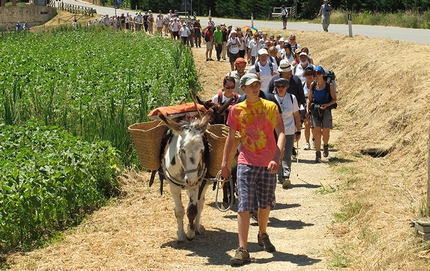
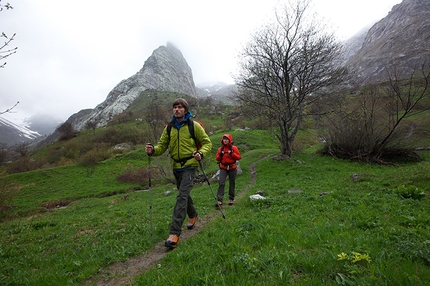
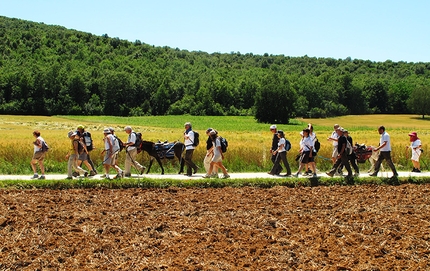

 See all photos
See all photos











